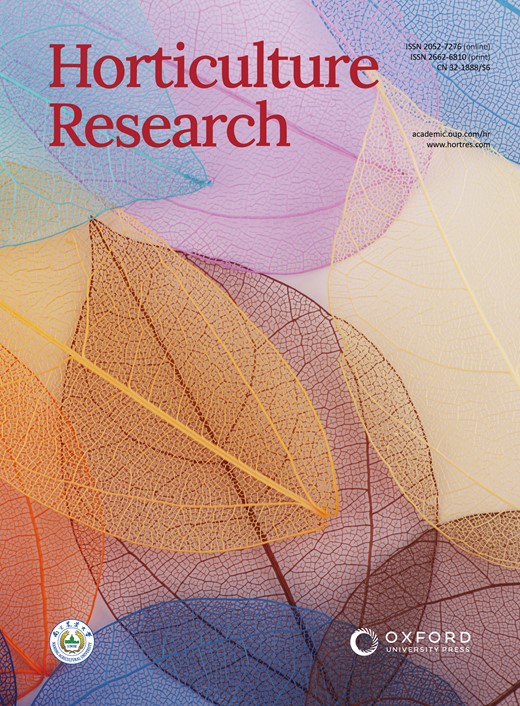Enhancing CRISPR-Cas-based gene targeting in tomato using a dominant-negative ku80
IF 8.7
1区 农林科学
Q1 Agricultural and Biological Sciences
引用次数: 0
Abstract
The CRISPR-Cas-based gene targeting (GT) method has enabled precise modifications of genomic DNA ranging from single base to several kilobase scales through homologous recombination (HR). In plant somatic cells, canonical nonhomologous end-joining (cNHEJ) is the predominant mechanism for repairing double-stranded breaks (DSBs), thus limiting the HR-mediated GT. In this study, we implemented an approach to shift the repair pathway preference toward HR by using a dominant-negative ku80 mutant protein (KUDN) to disrupt the initiation of cNHEJ. The employment of KUDN conferred a 1.71- to 3.55-fold improvement in GT efficiency at the callus stage. When we screened transformants, there was a more remarkable increase in GT efficiency, ranging from 1.62- to 9.84-fold, at two specific tomato loci, SlHKT1;2 and SlEPSPS1. With practical levels of efficiency, this enhanced KUDN-based GT tool successfully facilitated a 9-bp addition at an additional locus, SlCAB13. These findings provide another promising method for more efficient and precise plant breeding.利用显性阴性 ku80 在番茄中增强基于 CRISPR-Cas 的基因靶向能力
基于 CRISPR-Cas 的基因打靶(GT)方法通过同源重组(HR)实现了从单碱基到几千碱基范围的基因组 DNA 的精确修改。在植物体细胞中,典型非同源末端连接(cNHEJ)是修复双链断裂(DSB)的主要机制,从而限制了 HR 介导的 GT。在这项研究中,我们采用了一种方法,通过使用显性阴性 ku80 突变体蛋白(KUDN)来破坏 cNHEJ 的启动,从而使修复途径偏向于 HR。KUDN 的使用使胼胝体阶段的 GT 效率提高了 1.71 到 3.55 倍。当我们筛选转化体时,两个特定番茄基因座(SlHKT1;2 和 SlEPSPS1)的 GT 效率有了更显著的提高,从 1.62 到 9.84 倍不等。在实际效率水平上,这种基于 KUDN 的增强型 GT 工具成功地在另一个基因座 SlCAB13 上实现了 9-bp 的添加。这些发现为更高效、更精确的植物育种提供了另一种可行的方法。
本文章由计算机程序翻译,如有差异,请以英文原文为准。
求助全文
约1分钟内获得全文
求助全文
来源期刊

Horticulture Research
Biochemistry, Genetics and Molecular Biology-Biochemistry
CiteScore
11.20
自引率
6.90%
发文量
367
审稿时长
20 weeks
期刊介绍:
Horticulture Research, an open access journal affiliated with Nanjing Agricultural University, has achieved the prestigious ranking of number one in the Horticulture category of the Journal Citation Reports ™ from Clarivate, 2022. As a leading publication in the field, the journal is dedicated to disseminating original research articles, comprehensive reviews, insightful perspectives, thought-provoking comments, and valuable correspondence articles and letters to the editor. Its scope encompasses all vital aspects of horticultural plants and disciplines, such as biotechnology, breeding, cellular and molecular biology, evolution, genetics, inter-species interactions, physiology, and the origination and domestication of crops.
 求助内容:
求助内容: 应助结果提醒方式:
应助结果提醒方式:


